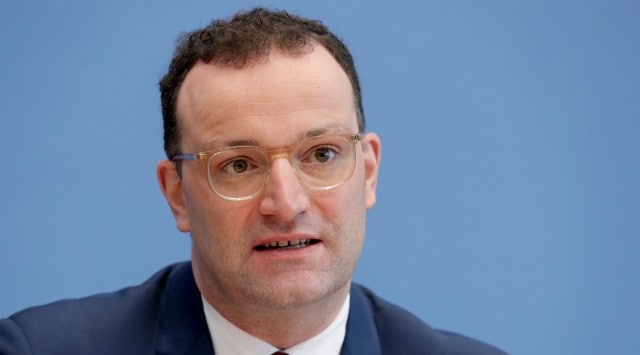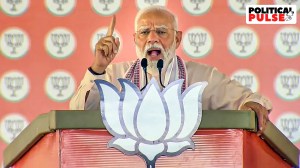- India
- International
Coronavirus: Germany ‘very far away from normality’
German Health Minister Jens Spahn believes an end to COVID-19 lockdown measures is not in sight as deaths soar and case numbers remain high. He said Germany is set to experience the "quietest New Year's Eve" in living memory, as the need to reduce contacts has become clear.
 German Health Minister Jens Spahn addresses the media during a press conference in Berlin, Germany, Wednesday, Dec. 30, 2020 on the new coronavirus, COVID-19, situation and the vaccination campaign in Germany. (AP Photo/Michael Sohn, pool)
German Health Minister Jens Spahn addresses the media during a press conference in Berlin, Germany, Wednesday, Dec. 30, 2020 on the new coronavirus, COVID-19, situation and the vaccination campaign in Germany. (AP Photo/Michael Sohn, pool)The German health minister on Wednesday said he could not envisage a relaxation of coronavirus measures when the current set of restrictions expires on January 10.
Jens Spahn said he could see no end to the lockdown currently in place as the country reported a record number of COVID-19 fatalities for the previous 24 hours.
Germany registered 1,129 coronavirus-related deaths over the past day, the Robert Koch Institute (RKI) of infectious diseases in Berlin said early on Wednesday. A further 22,459 new infections were recorded for the period.
“These figures prove just how brutally the virus is still pummeling us,” said Spahn, adding that any return to normality was still far off.
Spahn said he expected Germany to experience the “quietest New Year’s Eve” in living memory, as the need to reduce contacts became clear. “1,129 families will be mourning during New Year’s,” he said, referring to the day’s fatalities.

Will there be a lockdown extension?
Even after January 10, said Spahn, there would still need to be significant limitation on the number of contacts that people had.
On the question of whether schools and day care centers could be opened, he said this would need to be decided at a meeting of the federal government and state premiers on January 5.
Spahn said he did not wish to anticipate the outcome but that, in case of doubt, he would “rather have one week too long now than one week too little.”
The goal, he said, was to deal with infections over a longer period of time and prevent Germany’s health system from being inundated with new cases.
Meanwhile, Spahn said he hoped for “a quick and thorough examination” of a coronavirus vaccine developed by Oxford University and Astrazeneca vaccine by European Medicines Agency. That came after British regulators cleared the vaccine for use in the UK earlier on Wednesday.
Apr 27: Latest News
- 01
- 02
- 03
- 04
- 05








































